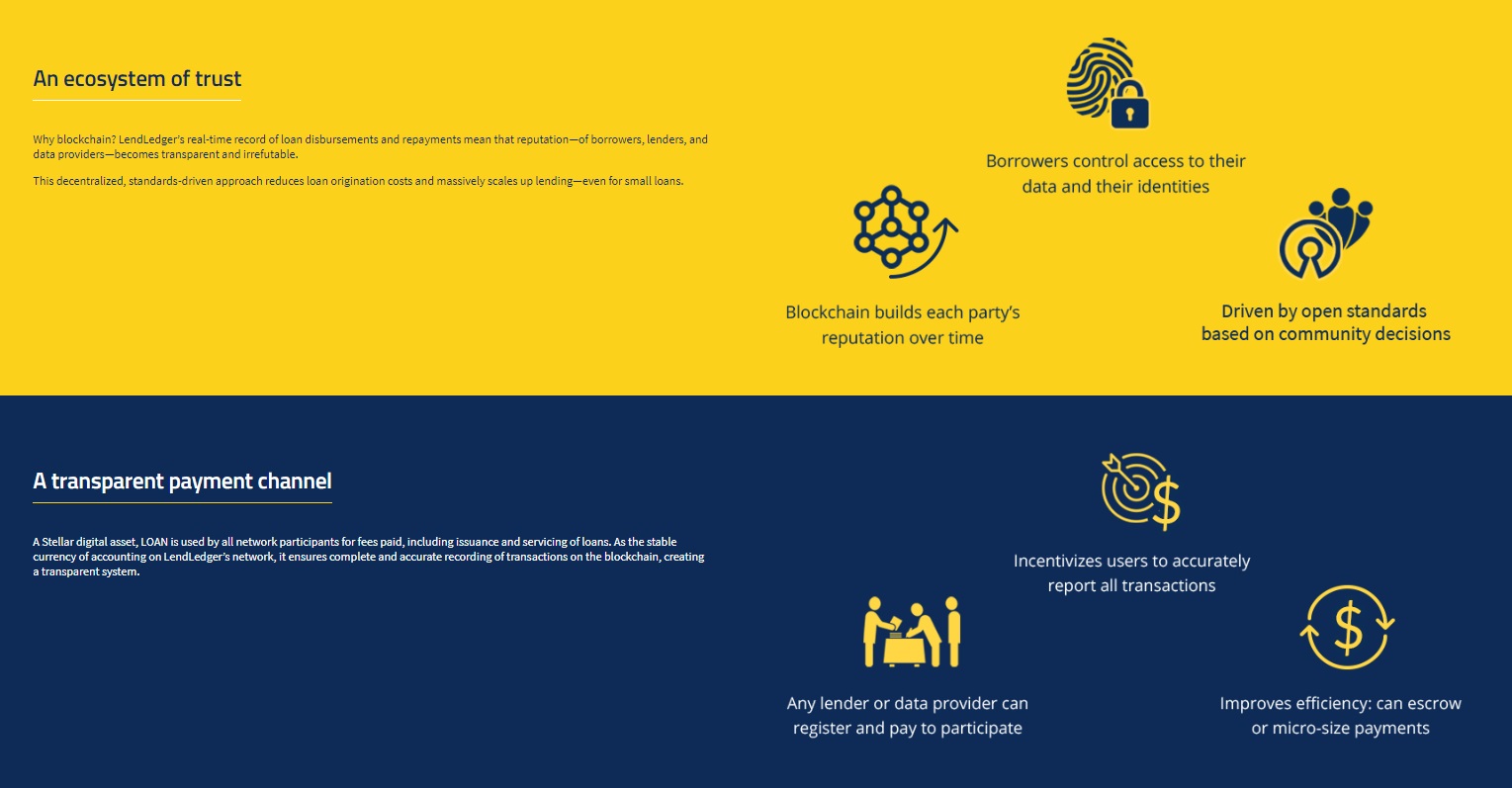
While existing intermediaries have attempted to take up a similar role, including the US-based LendingClub, many are inefficient and have limited growth and potential scale. LendLedger network which has has already processed loans to borrowers in 400 cities across India, totalling tens of millions in dollars of loan requests will use Stellar blockchain technology, APIs, and a digital asset called LOAN to solve these issues by ‘unlocking’ data, this provides trust, transparency and a seamless process for this underserved market.
LendLedger
Running a business requires capital. The problem is, accessing capital is rarely an even playing field.
Small businesses and those working in developing parts of the world often encounter problems when they try to acquire loans from formal lenders. Why? Current infrastructure requires borrowers to have good credit from banks and institutional lenders, and they need documentation and paperwork.
Many lenders would like to lend to emerging markets, but it can be risky to do so without traditional financial documentation and credit history. The result of this dynamic, according to the co-founders of a new open network called LendLedger, is a multi-trillion dollar lending gap between informal borrowers and institutional lenders.
To close this gap, the LendLedger network will use Stellar blockchain technology, APIs, and a digital asset called LOAN to achieve what the company believes will be a profitable and inclusive lending market.
Co-founders Gautam Ivatury and Manish Khera say that LendLedger will open up global lending markets, transforming an underserved sector. According to their whitepaper, LendLedger has the potential to solve some three of the major roadblocks standing in the way of a more open and fair lending market:
- There is no affordable way to lenders to evaluate borrowers in the informal sector
- Borrowers’ data exists, but lenders have difficulty accessing more informal data for credit evaluation. There is no reliable method available to evaluate unconventional financial data.
- Partnerships between lenders and data providers form slowly. This partnership model is not sustainable on a global scale.
LendLedger looks to solve these issues by ‘unlocking’ data on small businesses and informal borrowers and providing it on their platform. Once this data is available to lenders, it becomes possible to provide loans to those in the informal sector.

Blockchain technology allows every single detail of a transaction that occurs on the ecosystem to be tracked and recorded in real time. To protect privacy, borrowers can access their own data on LendLedger and choose if and when to share it with lenders. LendLedger’s use of an Open API Suite provides an interface to effectively exchange data. According to LendLedger, the advantages of the network are as follows:
- Trust: Blockchain technology eliminates the need for an intermediary party. Each party has full control over their encrypted transactions and data.
- Transparency: Any time a trade is executed, it’s recorded in a public ledger while maintaining the confidentiality of the data. Transactions can be viewed on the ledger in case of any disputes.
- Seamless Process: LendLedgers connects lenders, data providers, and borrowers in a single platform..
While existing intermediaries have attempted to take up a similar role, including the US-based LendingClub, many are inefficient and have limited growth and potential scale.
According to Ivatury and Khera, who both have lengthy backgrounds in traditional banking and the world of microfinance, LendLedger is well on its way to spur change in underserved markets. According to the pair, the network has already processed loans to borrowers in 400 cities across India, totalling tens of millions in dollars of loan requests. For more information, visit http://www.lendledger.io/.




